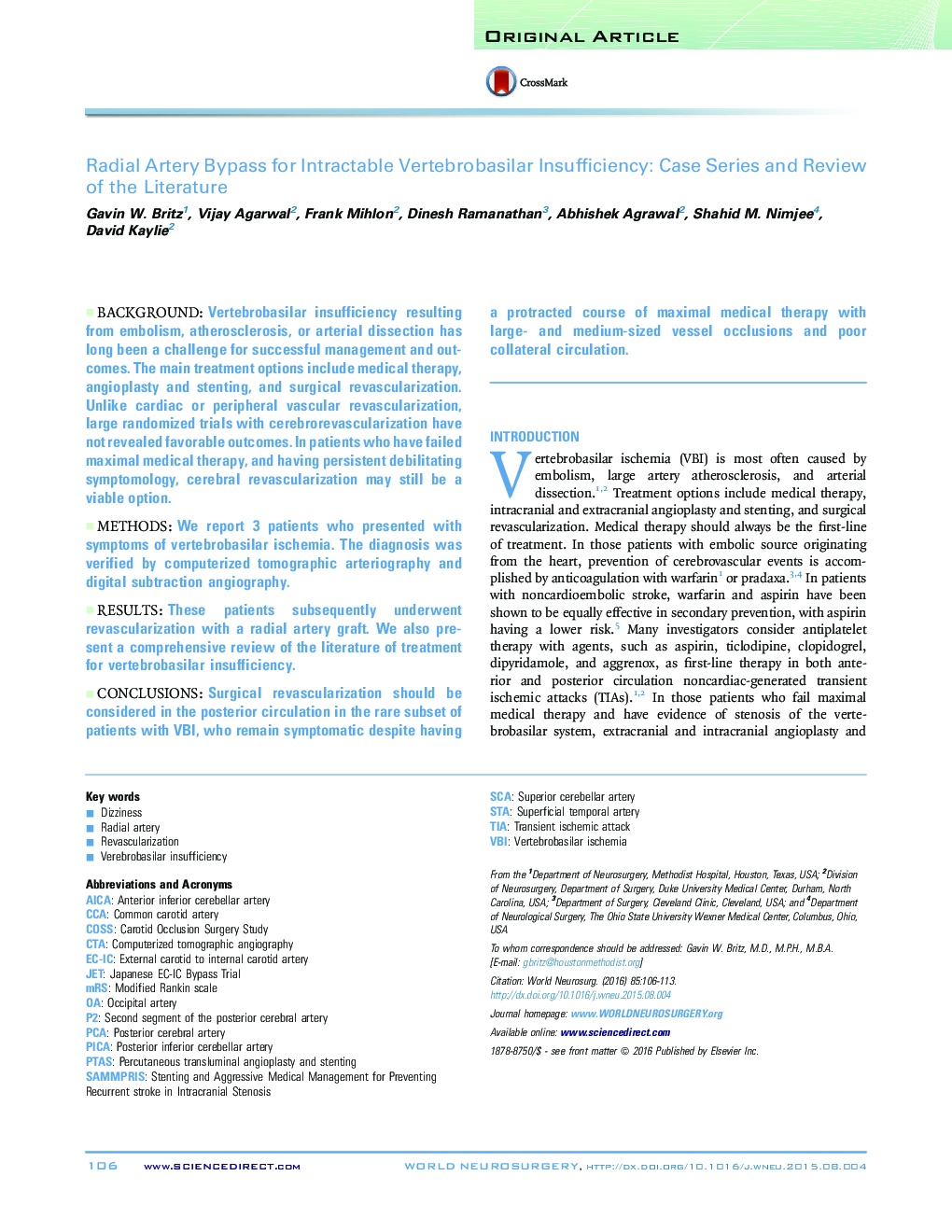| Article ID | Journal | Published Year | Pages | File Type |
|---|---|---|---|---|
| 3094884 | World Neurosurgery | 2016 | 8 Pages |
BackgroundVertebrobasilar insufficiency resulting from embolism, atherosclerosis, or arterial dissection has long been a challenge for successful management and outcomes. The main treatment options include medical therapy, angioplasty and stenting, and surgical revascularization. Unlike cardiac or peripheral vascular revascularization, large randomized trials with cerebrorevascularization have not revealed favorable outcomes. In patients who have failed maximal medical therapy, and having persistent debilitating symptomology, cerebral revascularization may still be a viable option.MethodsWe report 3 patients who presented with symptoms of vertebrobasilar ischemia. The diagnosis was verified by computerized tomographic arteriography and digital subtraction angiography.ResultsThese patients subsequently underwent revascularization with a radial artery graft. We also present a comprehensive review of the literature of treatment for vertebrobasilar insufficiency.ConclusionsSurgical revascularization should be considered in the posterior circulation in the rare subset of patients with VBI, who remain symptomatic despite having a protracted course of maximal medical therapy with large- and medium-sized vessel occlusions and poor collateral circulation.
